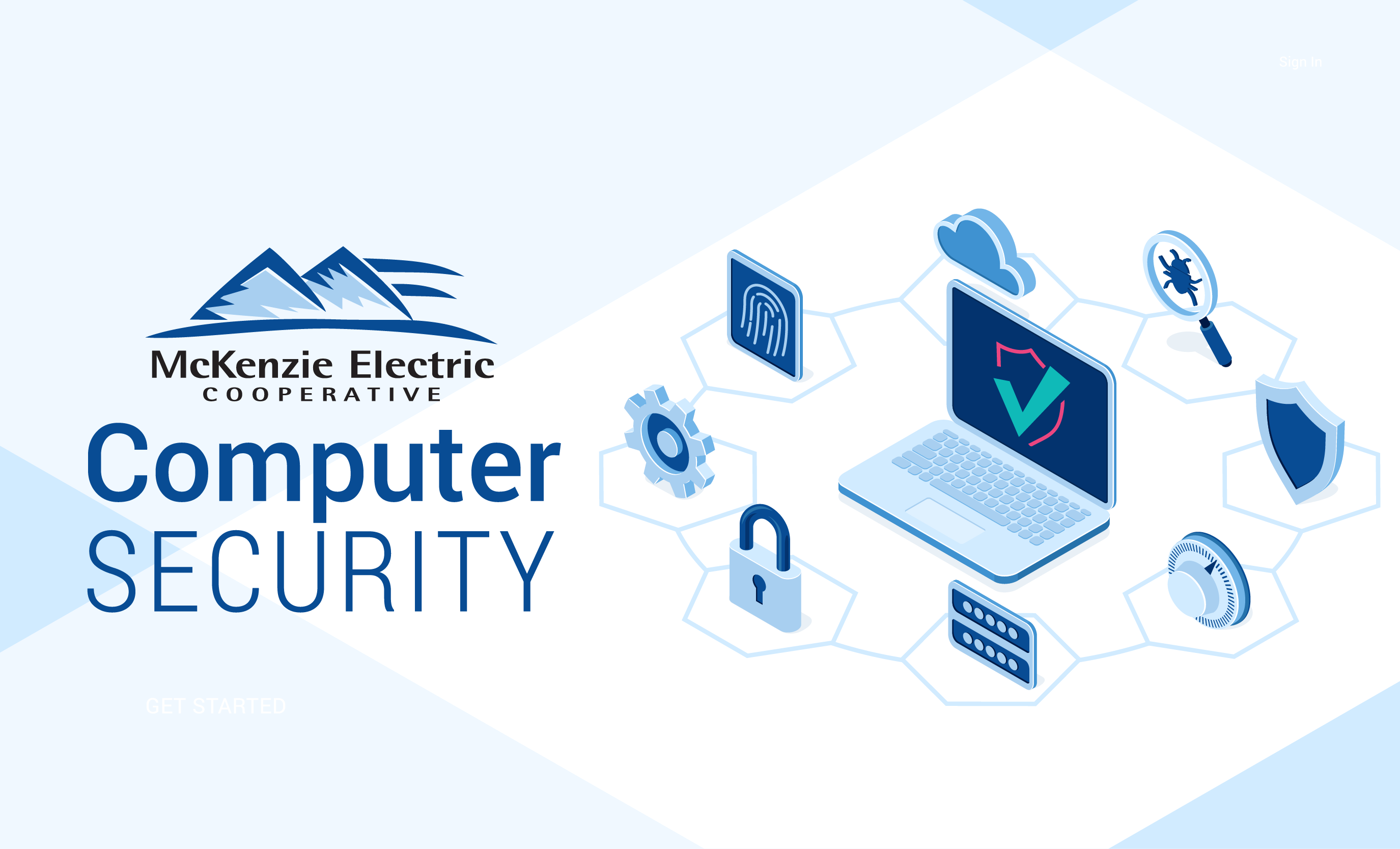Keep your information safe this holiday season!
Scammers can threaten you with everything from turning off the power to your home to legal action. Don’t fall for these types of scams. Utility scams often involve individuals posing as an employee of your local cooperative or utility. The caller may use threatening language in order to frighten you into offering credit card or bank account information. McKenzie Electric Cooperative wants to help you avoid any and all types of scams that could put your financial information in jeopardy.
In the past year, various scams have targeted cooperative members across the state and nation:
- A caller may ask for account and bill information, claiming they can reduce energy bills.
- A scammer may threaten disconnection and demand immediate payment.
- You may be instructed that payment must be made in prepaid cards.
- You may receive an email with an official looking document asking for payment to be made via a wire transfer.

Understand the threat scams pose and your best course of action:
- Don’t assume you can trust caller ID as to where a caller is located. Scammers often use technology so the area code and number you see may not reflect where they are really calling from.
- If you are ever contacted by phone about an account and have concerns about the validity of the call, don’t hesitate to tell the caller you prefer to call them back. Do not call the number on the caller ID. Call the number located on your statement.
- If you receive a suspicious call about your utility bill or account, gather as much information as you can from that individual, hang up the phone and contact local authorities and McKenzie Electric Cooperative. By calling the cooperative to report a suspicious call, you can talk to a member services representative who can confirm your bill and let you know if there is a problem with your account.
- Never give your account number, credit card number, bank information or other personal information over the phone without verifying the call.
- Always verify when asked to change payment information.
- If you receive a suspicious email, do not click links or open attachments. If you are not sure of the sender, do not respond to the email.
